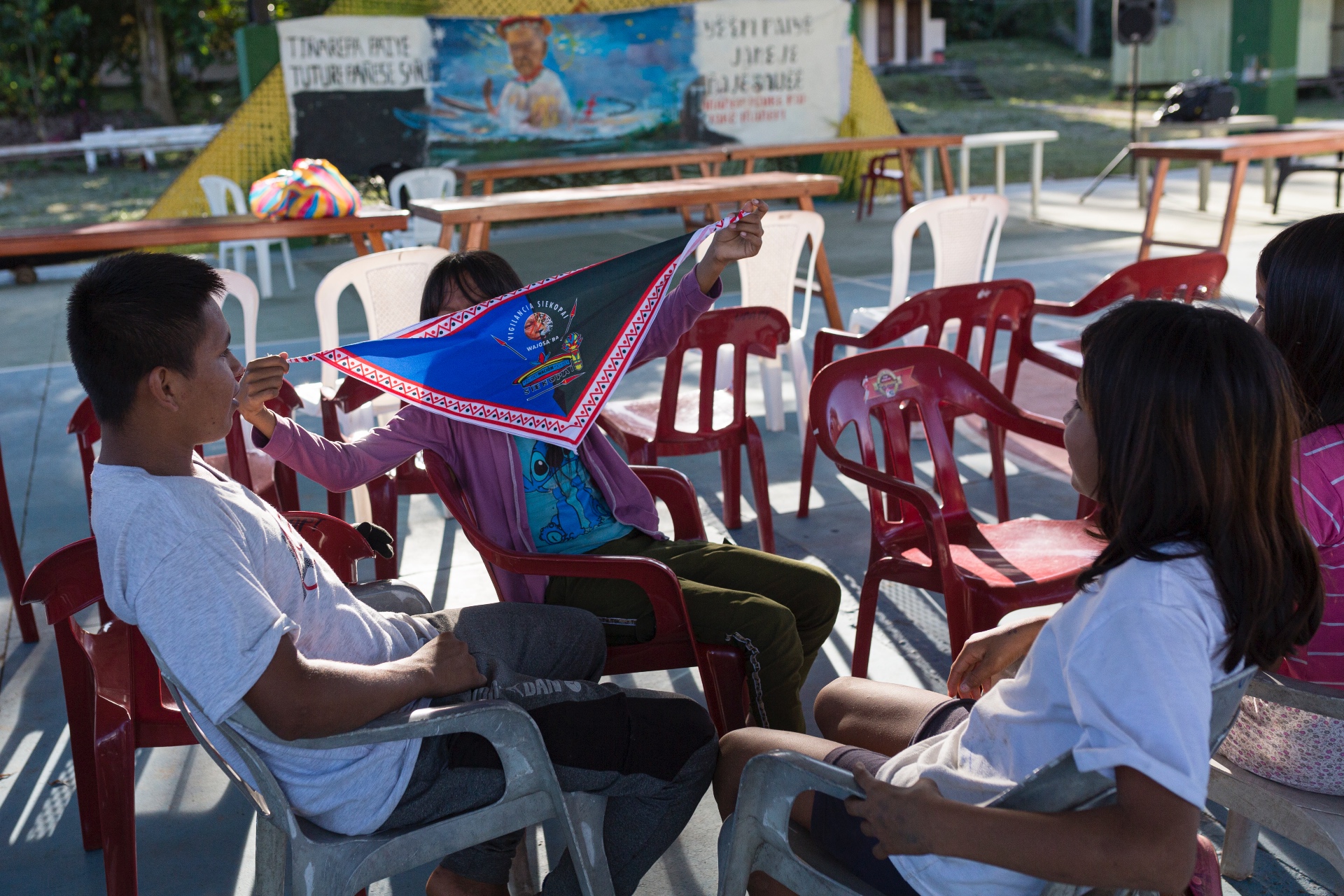2023-08-11
By Jeremy Gaunt
The future of Indigenous Peoples around the world remains under threat from governments, industry, and climate change. But it is well worth noting on International Youth Day a spark of light in the struggle – the increasing role being played by indigenous youth.
Be it protecting their homes from climate degradation or learning how to carry on and hone the traditional knowledge of their cultures, the young are key to the survival of the world’s roughly half a billion Indigenous Peoples.
They are also the new guardians of the environment, future custodians of indigenous land with its traditional techniques for preserving the ecosystems essential for life, fresh water, and food security.
“Indigenous youth are taking the central stage,” Luchie Maranan, Asia programme officer for the Pawanka Fund, said. “Stepping up to inherit the past from the elders is (essential).”

"(The young are) the new nurturers of indigenous wisdom."
Maranan was speaking at an August 9 webinar organised by the indigenous-led fund, which, named after a Miskitu word meaning “growing and strengthening”, supports community organisations recover and revitalise indigenous knowledge and learning systems.
The United Nations agrees that the young are making their presence felt.
To mark its 41st International Day of the World’s Indigenous Peoples, the same day as the webinar, it said: “Indigenous youth are working as agents of change at the forefront of some of the most pressing crises facing humanity today.”
It noted how young people are using cutting-edge technologies and new skills to contribute to a more sustainable and peaceful future.But in standing up, young people are also exposing themselves to risks such as increased discrimination and forced displacement from their homes.
“This is an invisible tragedy,” Darío Mejia Montalvo, president of the UN’s Permanent Forum on Indigenous Issues, told the webinar. “But they are agents of change,” he said.
The Voice of Youth
To emphasise the roles indigenous youth are taking, particularly in the environment, Pawanka brought together young Indigenous Peoples from around the world to talk about their lives and actions.
Martha Sengeruan, a young Tanzanian activist, explained how she had founded a school in the Engaruka region of her country for indigenous children who for various reasons, including poverty and tradition, were cut off from education.
The purpose was partly to have elders come and pass on traditional knowledge to the children. Such knowledge often involves protecting the environment through sustainable techniques employed by communities for centuries.
The environment was also on the mind of María José Fernández Paoa, who spoke about the damage other parts of the world are inflicting on her isolated island home of Rapa Nui, a Chilean territory in the southeastern Pascific. The island, famed for its Moai megalithic heads, is being eroded by climate change – and also flooded by the outside world’s seaborn plastic waste.
“Every time I go on the beach, I feel injustice,” she said from France, where she is on an exchange programme. “We spend hours picking up plastic, and the next day there it is (again).”
"Indigenous youth are working as agents of change at the forefront of some of the most pressing crises facing humanity today."
For Aibek Samakov, a young researcher for the Aigine Cultural Research Center in Bishkek, Kyrgyzstan, part of the problem is that environmental analysis often ignores local and/or indigenous information. It is based, in many cases, on Western climate change scenarios.
Part of Samakov’s research involves the Suuchular (Waterers) project that studies indigenous knowledge around the region’s mountainous lakes. Changes in the ecosystem measured by locals provide detailed information about the effects of climate change.
They note, for example, changes in grass, in winds, and in wildlife in and around the lakes. These are missed in big-picture environmental research.
“Local communities have much more intricate findings,” Samakov said.
Given these examples, it is no wonder that Pawanka’s Maranan dubbed the young “the new nurturers of indigenous wisdom”.
Articles